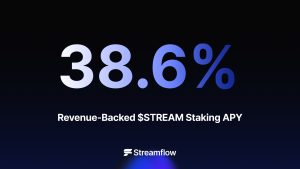GameFi revenues, metaverse interactions, and NFT purchases are all available via blockchain. It expedites and secures international crypto payments. This Article discusses these payments, their effect on the market, and possible roadblocks.

The Overview
Despite being relatively young, cryptocurrencies have caused quite a stir. With the introduction of Bitcoin, a new era began, and we have not seen anything yet.
Unlike traditional money, which requires separate payment networks, cryptocurrencies operate as payment systems by design as decentralised protocols. Cryptocurrencies use distributed ledgers to facilitate direct payments inside their networks.
Bitcoin’s astounding 173,000%+ value gain between 2015 and 2023 demonstrates the enormous potential. Between 2019 and 2025, the total cryptocurrency market may expand by 56.4% per year, with Bitcoin rising by 60% in just 2021.
Major corporations adopted the technology to expedite transactions. These systems have gained an advantage over traditional methods in terms of speed and security, and the benefits are promising enough to encourage broad corporate adoption.
Crypto Payments: An Innovation in Traditional Finance
Businesses incorporating crypto payment processors are causing a shift in the payments industry. Companies are using blockchain’s advantages to simplify transactions between individuals and organisations. Let’s break down some of the factors:
- Bitcoin is the most popular cryptocurrency. Due to its revolutionary nature and extensive use, It is still the most widely used cryptocurrency for financial transactions.
- Payments made with crypto lessen dependency on banks. Because cryptocurrencies are decentralised, peer-to-peer transactions are possible, eliminating various financial middlemen who handle processing.
- Regulations governing these payments are beginning to take shape. Governments are developing regulations to oversee and control the crypto payments business.
- Cryptocurrency assets have the potential to shift monetary systems from account-based to token/value-based models. Value transfer takes place through the exchange of cryptocurrency tokens confirmed on blockchains, unlike account balances handled by middlemen.
- Crypto payment options are displacing established payment companies. The increasing use of cryptocurrency payments could threaten the market domination of well-known payment service providers.
- Innovation is fueled by rivalry among cryptocurrency payment companies. There is intense competition in the cryptocurrency payments market, which pushes businesses to constantly improve what they have to offer and create innovative solutions.
Identifying Potential Challenges
Although using cryptocurrencies for payments has several potential benefits over more established techniques, a number of issues prevent its general acceptance and growth as reliable alternatives. Let’s take a look:
- Because distributed ledger technology is still new and not well understood, there is still scepticism among the public. Many people and businesses are still cautious of the possible risks connected to cryptocurrency payments.
- Limitations arise from a weak technical infrastructure. The infrastructure and requirements needed for the smooth adoption of payment solutions are still under development.
- Security flaws raise concerns about protecting financial assets and stopping fraudulent transactions.
- Volatility is also a big barrier since large swings in cryptocurrency prices create uncertainty for investors and companies thinking about using them for payments.
- The lack of global consensus regarding the legal status and government treatment of cryptocurrencies is the cause of regulatory uncertainty. There must be uniform legal frameworks.
Final Thoughts
Although crypto payments have the ability to transform international trade completely, certain obstacles must be removed before they can be widely used. Important tasks include addressing public scepticism, strengthening technical infrastructure, enhancing security protocols, lowering worries about volatility, and developing coherent regulations. As these problems are progressively rectified and a new era of simple and secure payments begins to set in, we expect that the impact of crypto will grow.
| Disclaimer: The text above is an advertorial article that is not part of Coincu.com editorial content. |























